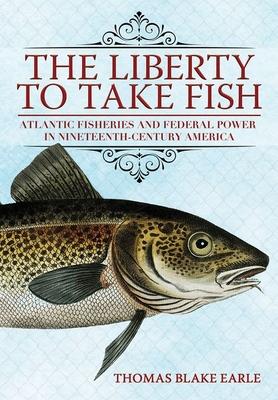In The Liberty to Take Fish, Thomas Blake Earle offers an incisive and nuanced history of the long American Revolution, describing how aspirations to political freedom coupled with the economic imperatives of commercial fishing roiled relations between the young United States and powerful Great Britain.
The American Revolution left the United States with the "liberty to take fish" from the waters of the North Atlantic. Indispensable to the economic health of the new nation, the cod fisheries of the Grand Banks, the Bay of Fundy, and the Gulf of St. Lawrence quickly became symbols of American independence in an Atlantic world dominated by Great Britain.
The fisheries issue was a near-constant concern in American statecraft that impinged upon everything, from Anglo-American relations, to the operation of American federalism, and even to the nature of the marine environment. Earle explores the relationship between the fisheries and the state through the Civil War era when closer ties between the United States and Great Britain finally surpassed the contentious interests of the fishing industry on the nation's agenda.
The Liberty to Take Fish is a rich story that moves from the staterooms of Washington and London to the decks of fishing schooners and into the Atlantic itself to understand how ordinary fishermen and the fish they pursued shaped and were, in turn, shaped by those far-off political and economic forces. Earle returns fishing to its once-central place in American history and shows that the nation of the nineteenth century was indeed a maritime one.
